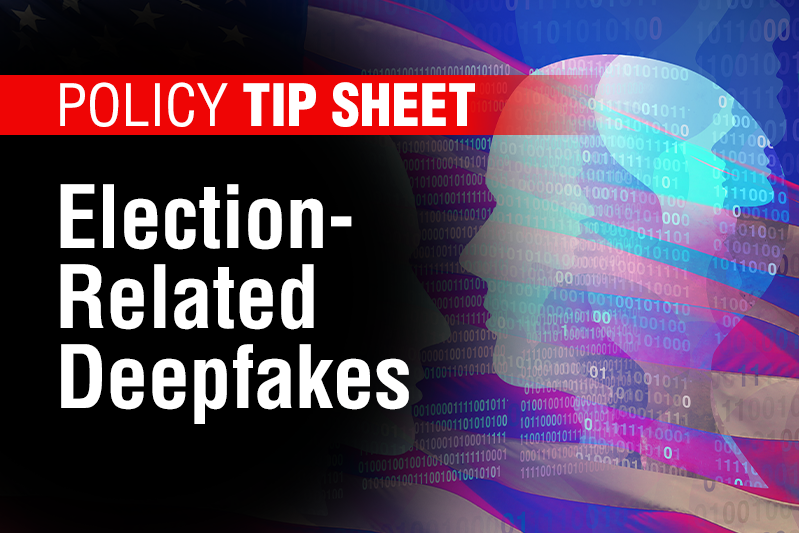(To view the full Policy Tip Sheet, click here)
Election-related deepfakes involving audio, photo, and video manipulations have become a significant concern in the digital age. Deepfakes use artificial intelligence (AI) to create convincing but false representations of individuals, making them appear to say or do things they never said or did. These manipulations pose significant threats to the integrity of public debate and electoral processes, as they can be used to spread false information, influence voter perceptions, and undermine trust in election outcomes.
Deepfakes are typically created using generative adversarial networks (GANs), which pit two AI models against each other to improve the authenticity of the final product. As AI technology has advanced exponentially in recent years, deepfakes have become more sophisticated, making it substantially more difficult to detect them. Advanced detection methods rely on analyzing inconsistencies in digital content, such as unnatural facial movements or audio[1]visual mismatches.
Deepfakes can undermine electoral processes by spreading false information about candidates, creating confusion among voters, and damaging the reputations of political figures. The ability to produce convincing forgeries can lead to a loss of trust in legitimate information sources, making it harder for voters to make informed decisions.
Even worse, creating a deepfake using established AI models is a relatively simple process; some sources claim that the average individual can create a deepfake in less than 30 seconds. As a result, Americans have become increasingly concerned about how to decipher what is real and what is not. For instance, one survey conducted in 2021 found that a majority of Americans believe the proliferation of AI has led to a loss of trust in elections (57 percent), a loss of trust in institutions (56 percent), and the spread of misinformation (58 percent).
These concerns are not unfounded or based on speculation. Deepfakes have already caused significant controversies in elections around the world.
To read the rest of this Policy Tip Sheet, click here.
Brady Smith is a fellow with the American Journey Experience: Freedom Rising Fellowship Program and a policy advisor for The Heartland Institute.
Jack McPherrin is The Heartland Institute’s research editor, as well as a research fellow within Heartland’s Socialism Research Center.





